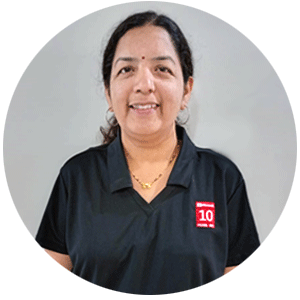OCP, Java SE 8 Programmer
Offline or Online Java SE 8 Programmer II - Exam Number: 1Z0-809 training.
Formerly Sun Certified Java Programmer (SCJP). The OCP, 1Z0-809 Java SE 8 Programmer II certification is designed for individuals who possess a strong foundation in the Java Programming language.

Sangita M. Mahajan
27+ years Experienced Microsoft Certified Trainer with many certs, View full profile....Course Description
This exam prep training course helps you prepare to take the Java SE 8 Programmer II certification exam. The Oracle Certified Professional (OCP) Java SE 8 Programmer certification is for experienced Java developers and requires passing two separate exams.
- Oracle Certified Associate (OCA), Java SE 8 Programmer (Exam 1Z0-808): This is the prerequisite foundational exam that covers core Java concepts.
- Oracle Certified Professional (OCP), Java SE 8 Programmer II (Exam 1Z0-809): This exam covers advanced Java features and is the final step to earning the Professional certification.
Target audience: Developers with extensive Java experience who have already passed the 1Z0-808 exam.
Student should know:
- Fundamentals of the Java Programming Language course
- Candidate should have completed the OCA 8 (1Z0-808) training completed
- Understand object-oriented principles very well
Pass in 1st attempt
Illustrate the breadth of topics and skills necessary to pass the exam.
Tips for passing
Give exclusive tips and strategies to prepare for the certification exam.
100% coverage
Provide a thorough review of exam objectives.
Get ready
Increase confidence.
This course covers following topics:
Java Class Design
|
|
Advanced Java Class Design
|
Generics and Collections
|
|
Lambda Built-in Functional Interfaces
|
|
Java Stream API
|
|
Exceptions and Assertions
|
|
Use Java SE 8 Date/Time API
|
|
Java I/O Fundamentals
|
|
Java File I/O (NIO.2)
|
|
Java Concurrency
|
|
Building Database Applications with JDBC
|
|
Localization
|
To get an OCA, Java SE 8 certified, you need to appear and pass the 1Z0-808 exam (Java SE 8 Programmer I : Oracle Certified Associate, Java SE 8 Programmer)
- You can appear this exam using your own laptop or desktop from Oracle certification portal directly.
- Exam Duration: 120 minutes
- Exam format: 68 multiple-choice questions
- Passing Score: 65%




